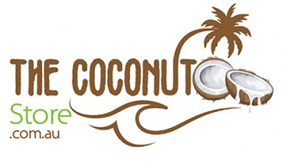
Healthier Microbiome: Coconuts as Dairy Alternative for Your Gut
What Is the Gut Microbiome?
The microbiome is the collective term for the trillions of bacteria. It also has some other microorganisms that live inside and on our bodies. You host around ten times more bacterial cells than human cells! While it’s true that most of these microbes are beneficial and help keep us healthy, some amount of “bad” bacteria is also present. As with all ecosystems, we must maintain a delicate balance for optimum health. When we talk about gut health, we’re referring to the health of these trillions of microorganisms that live inside our gut. The gut microbiome produces short-chain fatty acids, vitamins B and K2, that keep our immune system strong and provide energy. It also helps us digest our food and absorb nutrients to stay healthy.
Coconut: A Healthier Alternative to Dairy for Your Gut
It’s no secret that the gut loves fermented foods. A growing body of research is helping us understand how good bacteria are essential to our health. With this in mind, many people are looking for ways to increase the number of probiotics in their diet. That’s where things like kimchi, sauerkraut, and other fermented foods come into play. But if you’re trying to avoid dairy and are also sensitive to tree nuts, your options become much more limited. There aren’t too many substitutes for these classic gut-healthy foods – until now!
Coconut milk has recently grown in popularity as a non-dairy alternative to soy, almond, and other kinds of milk. Not only is it easy to make coconut milk at home, but as a bonus, coconut is also known for its high concentration of lauric acid, which research suggests may have significant benefits for our gut microbiome. At the same time, there are many reasons why you should be drinking (and eating) more coconuts!
Factors Affecting Gut Microbiome
A person’s digestive tract is home to a complex community of beneficial and harmful microorganisms. This collection of microorganisms is known as the gut microbiome and is vital for maintaining a healthy balance in the digestive system. The composition and diversity of the gut microbiome can be influenced by various factors, such as dietary choices, physical activity levels, medication use, and even genetics. These changes can significantly impact a person’s overall health, including mood, immunity, and general well-being.
Coconuts can have a positive impact on gut microbiome health for several reasons:
- Fibre Content: Coconuts contain soluble and insoluble fibre, which can help support beneficial gut bacteria growth. Fibre is essential for promoting healthy digestion and maintaining a balanced gut microbiome.
- Medium-Chain Triglycerides (MCTs): Coconuts are a rich source of medium-chain triglycerides (MCTs), a fat that is easily digestible and can help support gut health. MCTs can help to reduce inflammation in the gut and improve gut microbiome balance.
- Antimicrobial Properties: Coconuts contain antimicrobial properties that can help to prevent the growth of harmful bacteria in the gut. This can help to maintain a healthy gut microbiome and reduce the risk of gut-related health problems.
- Improved Digestion: The fibre and MCTs in coconuts can help to improve digestion and reduce symptoms such as bloating, gas, and constipation. This can help to maintain a healthy gut microbiome and support overall gut health.
Incorporating coconuts into your diet in the form of coconut oil, coconut milk, and coconut water can help to improve gut health. There’s also flaked, shredded or desiccated coconut to try or simply topping off your favourite treats with organic coconut confetti! These may all help support the growth of beneficial bacteria in the gut microbiome. As with any food, consume coconuts in moderation as part of a balanced diet.
How to have a Healthier Microbiome
Eat Collagen Rich Foods
Collagen is great for improving gut health since it helps with digestion, repairs the gut lining, and can treat IBS and leaky gut syndrome. The most abundant protein in the human body is collagen, but we produce less of it as we age.
Eating collagen-rich foods is an essential part of having a healthier microbiome. Collagen is a protein that helps maintain and improve the health of your gut lining, supporting the growth and maintenance of beneficial bacteria in your gut. Eating collagen-rich foods can help to improve digestion, reduce inflammation, and support overall health.
Available collagen products:
- Amazonia Raw Protein Collagen Plus Choc Hazelnut
- Beauty Collagen Blueberry & Fingerlime
- Beauty Collagen Vanilla and Kakadu Plum
- Decadent Chocolate – Collagen Creamer Focus
- Natural Pasture Raised Collagen
- SlimFit Collagen Spiced Vanilla
- Locako Collagen Creamer Indulgent (Cookies & Cream)
- Keto Collagen Vanilla White Chocolate
Supplement with Probiotic & Prebiotic
The microbiome is the human body’s collection of bacteria, fungi, and viruses. Probiotics and prebiotics are essential for a healthy gut, as they help keep the microbiome balanced. The human microbiome is an essential part of our health, but it can be challenging to keep it balanced. Fortunately, there are a variety of supplements that can help us maintain a healthy microbiome.
What are probiotics and prebiotics?
Probiotics are live microorganisms that provide health benefits when introduced into the host. They are beneficial bacteria in the intestines and help fight harmful bacteria while providing nutrients such as B12 and folate. On the other hand, prebiotics is non-digestible fibres that act as food for beneficial gut bacteria, promoting their growth while suppressing harmful bacteria.
- Mad Millie Coconut Yoghurt Kit
Choosing the Right Probiotics and Prebiotics Supplements
Various probiotic and prebiotic supplements are available, and it is essential to choose the right one to achieve better gut health. Many oral probiotics contain strains known for their health benefits, such as enhancing digestive function and mood. It is crucial to note that not all probiotics are created equal, and each probiotic strain can have different effects on the microbiome. It is essential to consult with a healthcare professional before starting a new supplement regimen.
The Best Sources of Prebiotics for Healthy Guts
Prebiotics are essential to a healthy microbiome, and it is vital to include them in your diet. Some of the best sources of prebiotics include garlic, onions, leeks, asparagus, bananas, whole grains, and legumes.
Limit Sugar Intake/ Avoid Artificial Sweeteners
Overeating sugar can harm your gut health, leading to an imbalance in your microbiome. But completely cutting out sugar is not the only solution. Using natural alternatives, you can still enjoy sweet treats without compromising your gut health. If you want to substitute refined sugar and sweeteners, you may opt for Stevia, honey, or monk fruit extracts. You can also try maple syrup, agave nectar, molasses, whole fruits, fruit juices, dried fruits, date paste, and organic coconut sugar. They contain vitamins and minerals, and fibre. Avoid fructose, as it may further increase your sugar cravings.
Eat an organic / Plant-Based Diet with Lots of Fibre
Eating an organic or plant-based diet with lots of fibre is one of the best ways to ensure a healthier microbiome. This type of diet helps to promote the growth of beneficial bacteria in your gut, which can help to improve digestive health and overall well-being. One way to get more fibre into your diet is using coconut flour as a dairy alternative. Our organic coconut flour is dairy-free, grain-free, gluten-free, low in carbs, and rich in dietary fibre, protein, and healthy fats. Coconut flour is also paleo and keto-approved and provides essential nutrients and fibre, which promote a healthier microbiome. Additionally, coconut flour can be used as a substitute for dairy products in many recipes, making it an excellent option for healthier alternatives to traditional dairy products.
- Organic Mushroom Powder Reishi
- Plant Protein Creamy Vanilla Tart
- Gluten Free Muesli Blueberry & Coconut (Paleo Blend)
Choose Polyphenol-Rich Foods
Polyphenols are plant compounds that have been shown to have beneficial effects on the gut microbiome. There are many types of polyphenols, such as flavonoids, proanthocyanidins, tannins, coumarins, lignans, stilbenes, and phenolic acids.
Virgin Coconut Oil (VCO) and coconut, which can be used as an alternative to dairy products, may help promote a healthier gut.
Which food has the highest polyphenols?
Herbs and Spices, Cocoa Powder, Flaxseeds, Nuts, Coffee and Tea, Virgin Coconut Oil, Olives, and Vegetables. Also, fruits like grapes, apples, pears, cherries, and berries.
- Cacao and Maca Adaptogenic Creamer Calm | Tonika
- Tea Tonic Coconut Loose Tea 500g
- Nutra Organics Lovers Latte
- Wholefood Pantry Organic Cold Pressed Virgin Coconut Oil
Be Mindful of Antibiotics
How do you keep your microbiome healthy when taking antibiotics?
Taking probiotics during and after a course of antibiotics can help reduce the risk of diarrhoea and restore your gut microbiota to a healthy state. Moreover, eating high-fibre, fermented, and prebiotic foods after taking antibiotics may also help reestablish healthy gut microbiota. See the “Impact of antibiotics on the human microbiome and consequences for host health.”
Avoid Processed foods
Your dietary patterns or eating habits might affect you right in the gut. Eating lots of processed foods, fast foods, and other unhealthy foods can harm your gut microbiome.
Eat naturally fermented foods
Eating naturally fermented foods can have a positive impact on gut microbiome health. Here are a few reasons why:
- Probiotics: Fermented foods contain live bacteria and yeast, also known as probiotics, which can help to improve gut health. These probiotics can help balance the microbiome, the community of microorganisms that live in the gut.
- Improved digestion: Fermented foods contain enzymes that can help to break down food and improve digestion. This can help to reduce symptoms such as bloating, gas, and constipation.
- Boosted immune system: The gut microbiome is an integral part of the immune system, and a healthy microbiome can help to boost the body’s defences against infections and illnesses.
- Better nutrient absorption: Fermented foods can help to improve the absorption of nutrients from other foods. This is because the probiotics in fermented foods can help to break down food and make it easier for the body to absorb nutrients.
- Reduced inflammation: Inflammation in the gut can be caused by an imbalance in the microbiome. Eating fermented foods can help to reduce this inflammation.
Overall, naturally fermented foods can help maintain a healthy gut microbiome and support overall health. By introducing fermented foods into your diet, you can reap the benefits of improved digestion, a boosted immune system, and better nutrient absorption.
Fermented-related products:
- Amazonia Raw Protein Organic Paleo Fermented Salted Caramel Coconut
- Amazonia Raw Protein Organic Paleo Fermented Vanilla & Lucuma
Eat a diverse diet
Eating a diverse diet can have a positive impact on gut health for several reasons:
- Diversity of Microorganisms: A varied diet can help to promote a diverse gut microbiome, which is vital for overall gut health. A diverse microbiome can help ensure sufficient beneficial bacteria in the gut to support digestive and immune functions.
- Nutrient Variety: Consuming a diverse range of foods can provide the body with various nutrients, including fibre, vitamins, and minerals, which are necessary for a healthy gut. Fibre, in particular, is essential for promoting the growth of beneficial bacteria in the gut.
- Avoiding Food Sensitivities: Eating a diverse diet can help to reduce the risk of developing food sensitivities and allergies, which can lead to gut irritation and inflammation.
- Reducing Overreliance on Processed Foods: A diet rich in processed foods can negatively impact gut health. Eating a diverse diet that includes whole, unprocessed foods can help to support a healthy gut microbiome.
- Promoting Healthy Eating Habits: Eating a diverse diet can help reduce the risk of developing unhealthy eating habits, such as overeating or consuming foods high in sugar and unhealthy fats.
Eating a balanced and diverse diet can help to promote a healthy gut microbiome. You can support a healthy gut and improve your overall health and wellness by incorporating various foods from different food groups.
Why Should I Care About My Microbiome Health?
The gut microbiome acts as an organ in its own right, performing many crucial functions for our health. A healthy gut microbiome helps absorb nutrients from our diet, regulates our immune system, and protects us against harmful infections. A healthy gut microbiome is also linked to a lower risk of various illnesses, including obesity, diabetes, heart disease, and several types of cancer. It’s important to note that a healthy gut microbiome is different for everyone. Their gut microbiome may be more or less healthy depending on a person’s genetics, diet, environment, and lifestyle practices. Many factors play a role in determining the health of our gut microbiome. The more we know about these factors and how they affect our gut microbiome, the better we can care for them.
How Does Coconut Benefit Our Microbiome?
Coconut is highly beneficial to the growth of “good” gut bacteria. Coconut contains high levels of lauric acid; this compound benefits gut bacteria’s growth. It also discourages harmful bacteria growth. Furthermore, coconut and coconut flour are rich in fibre and serve as a prebiotic, helping probiotic bacteria promote healthy digestion and help to avoid constipation. Many people suffer from an “imbalanced” microbiome due to an acute infection or a long-term condition. Antibiotics are frequently prescribed to treat infections, but they also have the potential to kill the good bacteria in our gut. Once the infection has cleared up, the damage has been done – our microbiome may not recover on its own. With that in mind, coconut may be the perfect food for helping to rebuild a healthy microbiome.

Image Source: FreeImages
4 Reasons You Should Be Eating More Coconut Right Now!
- Coconut is delicious. There are so many different ways to enjoy this tropical treat! You can add coconut to your morning coffee, bake it into your muffins, or top your favourite granola with shredded coconut. We can use coconut to make dairy-free ice creams, an excellent substitute for butter in baking. The only limit is your imagination!
- Coconut is excellent for your gut. We’ve already mentioned that coconut is prebiotic and is excellent at stimulating the growth of good bacteria in our gut. But that’s not all! Coconut is also rich in fibre, which helps to keep the bowels running smoothly and promotes healthy gut bacteria.
- Coconut is good for your heart. Coconut contains both monounsaturated and polyunsaturated fatty acids. These acids are known to reduce the risk of heart disease. Studies have found that coconut water also plays a role in lowering blood pressure.
- Maintains a Balanced Microbiome. Lauric acid, which makes up approximately 50% of the fatty acids in coconut oil, and monolaurin, a result of lauric acid digestion, are both present in coconuts and can help keep all the bad bacteria at bay.
3 Ways To Eat More Coconut Today!
Adding extra coconut to your diet is easy with coconut oil! Saturated fat, sometimes unfairly maligned, is abundant in coconut oil. A recent review of the evidence suggests that saturated fat does not raise the risk of heart disease; it appears neutral. We can use coconut oil for baking, frying, and even your daily beauty routine. We can easily add coconut oil to your diet in many delicious ways. You can also add it to your coffee or smoothie as a creamy topping. Coconut butter and coconut water are also great ways to boost your coconut intake. Coconut water contains minerals and electrolytes, making it an excellent sports drink.
Summing Up
Coconut has been used for thousands of years as both food and medicine. With the ever-growing focus on gut health, it makes sense to incorporate more coconut into your diet. Not only is coconut a tasty treat, but it also provides many health benefits. Coconut is not only incredibly delicious, but it also has a ton of health benefits. It can help to maintain a healthy weight and is especially beneficial for the gut microbiome. Coconut is easy to incorporate into your diet, either coconut oil or shredded coconut. You can add coconut to your coffee or smoothie or top your favourite granola with coconut confetti. With so many delicious ways to add coconut to your diet, there’s no reason not to eat more of it!
As always, consult with your doctor before making changes and for more info.














